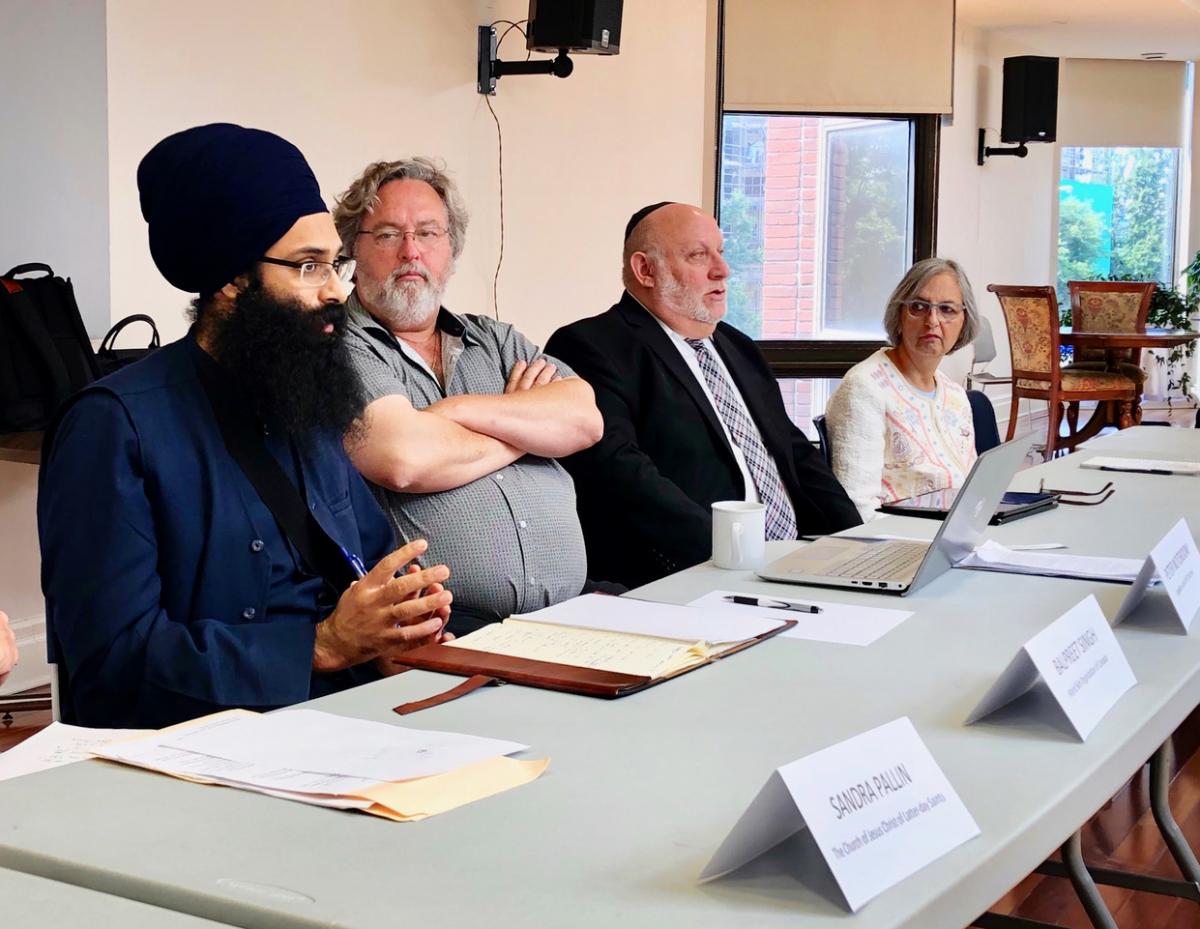Canadian Interfaith Conversation Gathers to Find Common Ground
On September 10, 2019, more than two dozen people met at the Toronto Baha’i Centre, as part of the regular meetings of the Canadian Interfaith Conversation, to discuss issues of shared concern to Canada’s religious communities.
At this meeting, the CIC discussed business matters among its partners, as well as introduced a new speaker series in relation to its established Our Whole Society gatherings. The first event of this series highlighted the topic of the recently passed Bill 21 in Quebec. Bill 21 has placed a number of restrictions on the rights of public servants in positions of authority to wear religious symbols while at work. This CIC gathering focused on learning about the context that led to Bill 21 and on respoonses to the Bill since it passed.

Senior representatives from the Canadian Council of Churches, World Sikh Organization, Canadian Council of Muslim Women, and the Centre for Israel and Jewish Affairs spoke about the root causes of the legislation, and what some of its implications will be for their communities and for society at large. They recognized that many of the conditions that lead to restrictions on religious freedom are present across Canadian society, and religious communities have a role to play in fostering social engagement that can build trust and diminish suspicion and hostility between groups.
Among these restrictive conditions has been the troubling rise in online hate. The Centre for Israel and Jewish Affairs has led a collaborative project intended to create a national strategy to combat online hate. Similarly, the Canadian Council of Muslim Women is initiating a Digital Anti-Racism Campaign that will use social media strategies to combat hatred spread online.
Other groups, including the World Sikh Organization, are mounting legal challenges to discriminatory aspects of legislation that is intended to protect state neutrality towards religion.
Participants acknowledged a growing global trend of hostility towards those who appear different, and associated political efforts to divide society into “us” and “them.” They agreed that part of the solution has to include collaborative efforts by religious communities to promote greater degrees of unity and solidarity at all levels of society.


